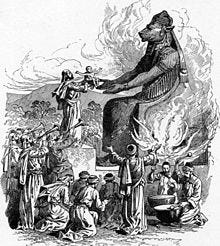If you are looking for the beginning of the study for The Young Carthaginian then you can go HERE for a brief introduction. At the bottom of the introduction you will find the links to each section of the study guide as it becomes available. If you would like to see the growing list of book studies available for free on this site you can go HERE. Enjoy!
Grammar Questions: (The Information of the Text)
Under what pretext do the conspirators meet openly at the house? What rumor have they intentionally spread?
What is “the punishment of the violation of the oath” if Malchus tells anyone of the conspiracy?
What was “to the surprise of Malchus” concerning the demeanor of the conspirators?
What does Malchus think of the sacrifices to Moloch?
What made Malchus realize that “he had rashly entered” into the conspiracy and also made him glad to have found a way out?
As the soldiers waited to embark for their journey, what happened when “a blast of trumpets sounded”?
How is the geography of Carthagena described?
According to Henty, what should the Second Punic War really be called?
How is the moral character of Hannibal described?
Logic Questions: (Interpreting, Comparing/Contrasting, Reasoning)
Why are Giscon and his friends so casual about such dangerous matters as revolution? What do you think this says about them?
What should we infer about Malchus based upon his objections to the way Moloch is worshiped in Carthage?
Given the information in the text, approximately how many soldiers can each of the large merchant ships carry in addition to their supplies?
Why is Carthagena’s wealth and independence an important matter, historically?
How does the description of Hannibal’s character, found at the end of this chapter, relate to the advice Hamilcar gave to his son, Malchus, in chapter 1?
Rhetoric Questions: (The Analysis of Ideas in the Text)
Would you say that Giscon and his friends are prudent or imprudent in their actions? Explain and defend your answer from the text and with good reasoning.
Is there ever a time where Christians can justly put off, or rebel against, the form of government that is currently over them? If so, how and when? If not, why not?
Giscon tells Malchus, “When we have succeeded in ridding Carthage of her tyrants we must next do all we can to raise the condition of the common people that they may feel that they too have a common interest in the fate of our country. I should not, of course, propose giving to them a vote; to bestow the suffrage upon the ignorant, who would simply follow the demagogues who would use them as tools, would be the height of madness. (The affairs of the state, the government of the country, the making of laws, must be solely in the hands of those fitted for the task – of the men who, by education, by birth, by position, by study and by leisure have prepared their minds for such a charge. But the people should share in the advantage of a good government; they should not be taxed more than they could reasonably pay, and any tax gatherers who should extort a penny beyond the legal amount should be disgraced and punished.” In light of this passage, answer the following questions:
What potential goods and what potential evils do you see in Giscon’s conception of governing a nation?
Would you amend his notion of the way in which a nation should be governed? Why or why not? If you would, what might you suggest be different?
Theological Analysis: (Sola Scriptura)
Read Leviticus 20:1-5. Having read this current chapter about the worship practices of those who revere Moloch, how does this affect your thinking about what God says in Leviticus? (Molech and Moloch are alternate spellings of for the same deity)
Read Romans 13:1-7. How do the actions of Giscon and his companions stand in light of this teaching?
Consider Acts 4:18-22. How should this factor into the question of Christians obeying versus disobeying their governing authorities?



